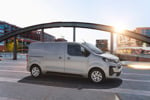Handing business travel control to fleet managers can result in massive savings. Sarah Tooze reports
Does your company know how much it spends on business travel? Chances are that unless you have a travel manager, you will be spending far more than you think – or, indeed, should be.
One company in retail thought it kept a tight control on its travel spend. But its estimate turned out to be wildly inaccurate.
It believed its spend was £30,000 – the amount paid to its travel agency. In reality, it was spending £500,000.
No-one was managing the spend and controlling it. That changed when it was taken over by another company which had a fleet and travel manager.
He was able to highlight the actual cost of business travel and set about introducing policies and processes to reduce costs. For instance, long haul flights were purchased further in advance, saving thousands of pounds.
Consequently, annual expenditure has been cut by £90,000 – rail travel spend has fallen by 28%, air travel by 18% and hotel bills by 19%.
He believes travel management is a role that should be embraced by fleet managers. And he’s not alone.
Professor Peter Cooke has championed the idea of fleet managers progressing to mobility managers for the past 15 years.
“It can work both ways,” Cooke says. “I have also seen travel managers taking on the fleet role, particularly in a contract hire situation.
“If the fleet is outsourced to a contract hire or fleet management company there is an opportunity to consolidate the roles of fleet and business travel.
“If a company is re-organising they might decide to give the fleet operator a bigger role. The big advantage is cost because you start to manage
‘total mobility’.”
While most organisations still keep the fleet function separate to business travel, the numbers managing both are on the increase.
The Institute of Travel & Meetings (ITM, formerly the Institute of Travel Management) estimates that 15 to 20% of its members manage both fleet and travel, and says it has seen numbers grow recently.
ITM chief executive Paul Tilstone believes corporate social responsibility as well as the economic climate is driving the change.
Nigel Turner, director of programme management for the UK & Ireland at Carlson Wagonlit, which specialises in business travel management, has also noticed a trend. He says: “It’s common for our customers to have dual responsibility – about 20% of our customers that are responsible for travel also look after the car fleet – and we have seen an increase.
“Business travel is not just planes and trains. Company cars and the grey fleet should be put into the equation too.
“Particularly in the public sector they are looking at both aspects. They are looking at ways to get people out of the grey fleet and into more energy efficient modes of transport.”
Other duty of care responsibilities can also be met. A fleet and travel manager can ensure that if an employee has had a 14-hour day travelling to another country and back they don’t then drive their company car while tired and instead get a taxi or public transport.
“Companies need to know how and why they use cars,” Tilstone says. “And once you start to have conversations about different modes of transport you start to wonder why fleet and business travel are managed separately.”
One fleet manager who recently took on travel management says: “There’s synergy between business and fleet travel – it’s all transport at the end of the day.
“It’s a shame to restrict your role to fleet. There are other interesting areas of travel to get involved in.
“Fleet managers already have a lot on their plate but they should see it as an opportunity to develop their role. It’s the natural next step.”
Another fleet manager agrees that making travel management part of his role was a logical move: “My role changed about 10 years ago. I was working on a car hire project and someone in another department was also working on car hire – it seemed ridiculous.
“Now there’s no misdemeanour with one person doing one thing and another doing something else. It’s all in one place.”
The company has one travel policy covering all forms of mobility. It stipulates that employees must get the best deal they can. Staff are also advised to travel outside peak times on train journeys and are not allowed to fly first class without a good reason. The fleet and travel manager has sign-off to ensure policies are adhered to.
Another aspect of the role is negotiating with airlines and hotel chains which can be likened to negotiating with leasing companies.
“Lots of skills transfer into business travel,” says one fleet and travel manager. “Fleet managers understand how to drive value into the business.
“For instance, people get hung up about upfront discounts on vehicles without looking at the business needs. It’s the same with travel – you might get a good rate with an airline but it’s no good if the airline doesn’t fly from the airport down the road. A fleet manager will take that into account.”
The role typically involves working closely with the company’s travel agent.
“Managing a travel agent is a lot like managing a leasing supplier,” another fleet and travel manager says. “We work with our travel agent so they understand our policy and can advise staff on the best method of travel.
“We also get management information from the travel agent on a monthly basis and use it to achieve cost savings.
“For instance, we might be using five hotels but we could reduce that to four and get better discounts. Although you can have route deals with airlines we have found it better to spot buy simply because of the places we fly to.”
Rail travel is arguably a more difficult area to negotiate deals, particularly if the company’s use of rail is relatively low.
“Train travel is a real minefield,” says Nigel Underdown, head of transport advice at the Energy Saving Trust (EST). “The days of consistent pricing are long gone and companies need to plan ahead to get the best deals.
“But the biggest savings won’t happen by buying cheaper tickets, they will come from challenging people not to travel at all.
“Question why people are travelling to a meeting when they could be doing a video or audio conference instead. It’s a difficult area to manage though because how do you decide if a journey is necessary or not?”
The EST advises companies to implement a travel hierarchy (see illustration, page 41). The hierarchy consists of a series of questions staff and line managers should consider before choosing to use a vehicle for their journey.
In order for the hierarchy to work, options such as video or audio conferencing, easy booking of rail tickets, bus routes and timetables, pool cars and hire cars must be available for staff.
Dr Will Murray, research director, Interactive Driving Systems, advises companies to consider a travel survey to establish travel patterns before implementing a travel plan or travel hierarchy.
An example of a travel policy is available from the European Transport Safety Council website – www.etsc.eu/ETSC%20Travel%20Plan.pdf
Business travel management companies like Carlson Wagonlit can also help companies with their transport strategy.
“We can manage the travel policy for companies,” says Turner. “We can build controls into our online system to make sure the travel policy is adhered to or brief our staff if bookings are done over the phone.
“We can also produce a total impact report which looks at the key routes and works out the most effective ways to do them.
“You have to factor in productivity savings. If a person is travelling up and down the motorway that is dead time, but if they are on the train they might be able to do two hours’ work. We can look at the carbon emissions side too.”
He suggests that combining the business travel with fleet can help a company achieve its environmental goals.
Other systems can also be used to monitor travel. For instance, Paul Jackson, managing director of fuel and mileage audit company The Miles Consultancy (TMC), says: “Our system can monitor all the journeys staff make, including taxis and planes. The only thing it doesn’t monitor is walking.
“We can present information to a client on a monthly basis showing them the cost per mile. It gives them evidence of the cost of travel.
“You might have an individual spending £20,000 on rail travel but they’ve got a company car in their drive, so you might question why they have a car.
“A fleet manager often just looks at the cost of leasing a car rather than the cost of all travel. We’ll ask them what their rail fare spend is and they haven’t got a clue because the spend sits with another department. They don’t see it as their responsibility. But maybe they should take on the responsibility to protect their role.”
Becoming a travel manager isn’t as straightforward as it sounds though.
“There are similar issues in fleet and business travel, but each sector requires specialist knowledge,” says Tilstone. “Training is a must. Even if you outsource travel management you need have to have a basic understanding.”
The challenge, as Jackson highlights, is that the travel budget doesn’t necessarily rest with the fleet manager. And often it can be employees making the transport decisions.
“Some companies want flexibility. They want staff to book their own travel so it depends on the company,” says one fleet and travel manager.
How much international travel the company does is also a factor to bear in mind. Arguably, an organisation with employees clocking up lots of air travel has a greater need for a dedicated travel manager.
Eon saves £200,000 through tele- and video-conferencing
Fleet and travel is now managed within the same Business Services department at Eon.
Historically, travel was managed separately to fleet and sat within the procurement department.
Eon says there is synergy between fleet and travel and combining it in the same department has created a ‘one stop shop’ for staff as well as allowing Eon to see the total cost of a trip and to measure the carbon impact of business travel.
However, the company has chosen to employ separate experts within the Business Services team to focus on the travel, commercial vehicles and cars elements.
David Graham (pictured left) who heads the department, appointed a dedicated travel manager in 2008 to meet the growing need for business travel and to ensure Eon was managing its duty of care responsibilities effectively.
“The benefits of having dedicated travel expertise is significant,” an Eon spokesman says.
“Although the functions, for us, need to be managed together,
the expertise needed for travel management is different from vehicle management, particularly for a company of our size.”
Eon has around 7,000 vehicles and has to meet the travel requirements of more than 15,000 employees. A high proportion of travel is domestic to people’s homes and places of business.
Due to the nature of the business, the majority of staff travel in the UK is still undertaken via company cars and vans but the use of alternative forms of
transport is encouraged.
Tele and video conferencing is increasing – in the last three months of 2010 Eon saved £200,000 by using Telemeet.
This saving takes into account the cost of flights, vehicles and fuel, employee time saved and carbon emissions saved.
Eon’s travel manager books flights in advance and ensures that flexible tickets are not purchased, helping to bring additional savings.
Holistic view identifies most cost-effective travel options
Travel management has always been part of Chris Pullen’s role.
Over the past 15 years she has progressed from fleet and travel manager to head of facilities and procurement at Hyder Consulting (UK) Limited, which has a fleet of 300 vehicles.
Pullen undertook an ITM qualification in business travel management a number of years ago and is a member of the ITM and ACFO.
Hyder Consulting has a UK travel team with members of staff able to work on both fleet and travel. Pullen oversees the team as well as carrying out tenders, contract management and managing the fleet and travel budget.
Employees are not allowed to book travel themselves – it has to be done through the travel team.
“It gives us a holistic view,” Pullen says. “We can work out the most cost-effective way of doing a journey.”
She introduced a travel plan last year in order to control costs.
“We have seven UK offices and they used to run as individual businesses,” Pullen explains. “But we changed the structure of the business and it’s now run by sectors. It means we have people travelling between offices more so we have introduced a travel plan to stop our costs going up.”
The travel plan encourages the use of car sharing as well as alternative modes of travel.
“If it’s sensible to drive and there is adequate parking then we will advise that but if the train is cheaper we’ll book that. People can work on the train so that increases our utilisation.”


















Login to comment
Comments
No comments have been made yet.